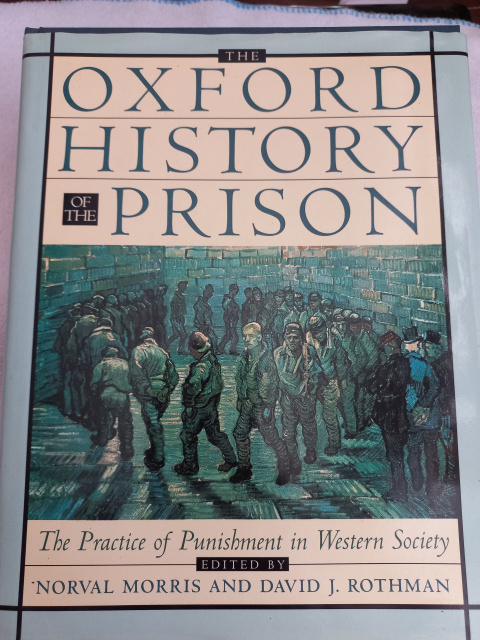- BOOK SHOP
- Світлана Маляренко
- +38 (066) 112-71-76
+38 (096) 575-68-13 -
bookshopsvetik@gmail.com
Написать нам - м.Почайна, ул. Вербовая,17, Книжный рынок, ряд 84 место 26с, Киев
- График работы
The Oxford History of the Prison - Norval Morris
- Детальное описание
- Характеристики
- Оставить отзыв
In The Oxford History of the Prison, a team of distinguished scholars offers a vivid account of the rise and development of this critical institution. Penalties other than incarceration were once much more common, from such bizarre death sentences as the Roman practice of drowning convicts in sacks filled with animals to a frequent reliance on the scaffold and on to forms of public shaming (such as the classic stocks of colonial America). The first decades of the nineteenth century saw the rise of the full-blown prison system--and along with it, the idea of prison reform. Alexis de Tocqueville originally came to America to write a report on its widely acclaimed prison system.
The authors trace the persistent tension between the desire to punish and the hope for rehabilitation, recounting the institution's evolution from the rowdy and squalid English jails of the 1700s, in which prisoners and visitors ate and drank together; to the sober and stark nineteenth-century penitentiaries, whose inmates were forbidden to speak or even to see one another; and finally to the "big houses" of the current American prison system, in which prisoners are as overwhelmed by intense boredom as by the threat of violence. The text also provides a gripping and personal look at the social world of prisoners and their keepers over the centuries. In addition, thematic chapters explore in-depth a variety of special institutions and other important aspects of prison history, including the jail, the reform school, the women's prison, political imprisonment, and prison and literature.
Обновлён: 28 июля 2024, 14:36




















